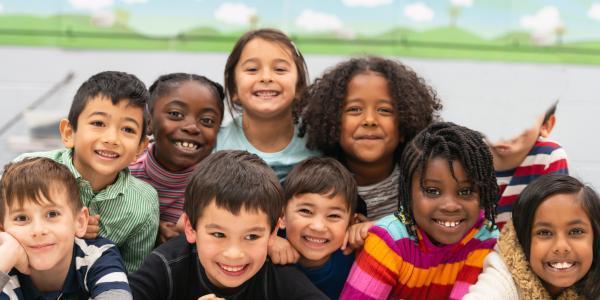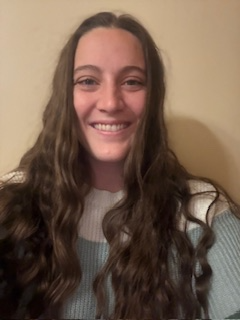Lauren Maness

You are here
Student Governing Board Member Candidate
I am interested in serving as a graduate-level student board member for NAEYC because I see this as a meaningful opportunity to grow as a leader while contributing to an organization that reflects my deepest professional values. I believe that intentional, high-quality early childhood education—rooted in equity, inclusion, and research-based practice—is the foundation for lifelong learning and development.
One valuable insight I have gained comes from my time working as a Behavioral Intervention Classroom (BIC) teacher. As a teacher, I provided direct support to children from Pre-K through 5th grade and assisted students from 6th grade through our 18+ transition program. In addition to working with students, I helped train teachers in intervention techniques, reinforcement strategies, and data collection and synthesis. Collaborating closely with Board Certified Behavior Analysts (BCBAs) and child psychologists taught me the importance of supporting the whole child. Through this experience, I saw how learning through play and social-emotional lessons is essential and complements academic development.
Additionally, my experience as an intervenor for DeafBlind students deepened my understanding of early intervention’s critical role. Working one-on-one with this unique population, I learned how tailored supports and communication strategies empower children and adults with disabilities to engage meaningfully with their environments and communities.
I believe one of the most significant challenges facing early childhood education—and education as a whole—is the high rate of teacher turnover and the growing teacher shortage. When these roles are filled by new or inexperienced teachers, they require extensive support and professional development to help students reach their full potential. Unfortunately, after time and resources are invested in training, many educators leave the profession due to burnout or low pay. This is a tremendous loss to the field.
I bring a valuable and often underrepresented perspective through my background in special education and my hands-on experience working with young children both with and without disabilities. I currently serve as a second-grade special education resource and inclusion teacher and have also worked as a caregiver, Special Olympics coach, and counselor at Camp Summit, a residential camp for individuals with disabilities. These experiences have given me insight into the needs of diverse learners and the importance of supporting the whole child through inclusive, developmentally appropriate practices.
This summer, I completed my M.Ed. in Curriculum and Instruction with a focus on Teacher Leadership at the University of North Texas, where I also earned my undergraduate degree. I will begin my Ph.D. in Family and Child Studies at the University of New Mexico this fall. My graduate work has deepened my understanding of the support educators need—especially early in their careers—and I am passionate about building systems that promote educator sustainability, equitable access, and inclusive environments for all children.
During my master’s degree, I conducted research focusing on preservice teachers, student teachers, and teachers in their first five years of practice to understand their perspectives on teaching. Each study highlighted the need for increased hands-on experience and more comprehensive training for preservice teachers. I believe that my background and education equip me to provide valuable insights to NAEYC’s leadership, particularly in advocating for strengthened teacher preparation and ongoing professional development to better support educators and improve student outcomes.
I observed that when teachers continue working in the classroom with consistent training and coaching cycles, they are able to improve student outcomes and increase their time in the classroom. When teachers feel supported, they are more likely to stay in the profession. From my experience in a Behavioral Intervention Classroom (BIC), I have witnessed teacher burnout firsthand. Working in extremely high-stress, high-demand roles with students who have significant behavioral challenges often leads to teachers leaving their positions. As we see an increase in challenging student behaviors, there is a corresponding rise in teacher attrition. Both my research and experience suggest that focusing more on social-emotional learning (SEL) at younger ages helps prevent some of these challenges. In fact, in an SEL course I am taking through the New Mexico Public School Districts, they report that SEL instruction starting in early childhood yields a return of $11 for every $1 invested.
In addition to my work with students and educators, I have actively collaborated with parents to support their children’s growth in all areas—academic, social-emotional, and behavioral. I believe that involving families as partners in education is essential to creating consistent, nurturing environments that extend beyond the classroom. Through regular communication, workshops, and individualized guidance, I help parents understand their child’s unique needs and strategies they can use at home to reinforce learning and development. This partnership approach not only empowers families but also strengthens student outcomes by ensuring support is aligned and comprehensive. Supporting families in this way aligns closely with NAEYC’s goal to provide research-based resources and guidance that enhance family engagement and early childhood education.
As a student board member, I would be committed to representing the voices of graduate students while also contributing the perspectives of classroom educators and special education professionals. I am excited by the opportunity to learn, collaborate, and support NAEYC’s mission of advancing a strong and equitable early childhood education profession.
Sincerely,
Lauren Maness M.Ed